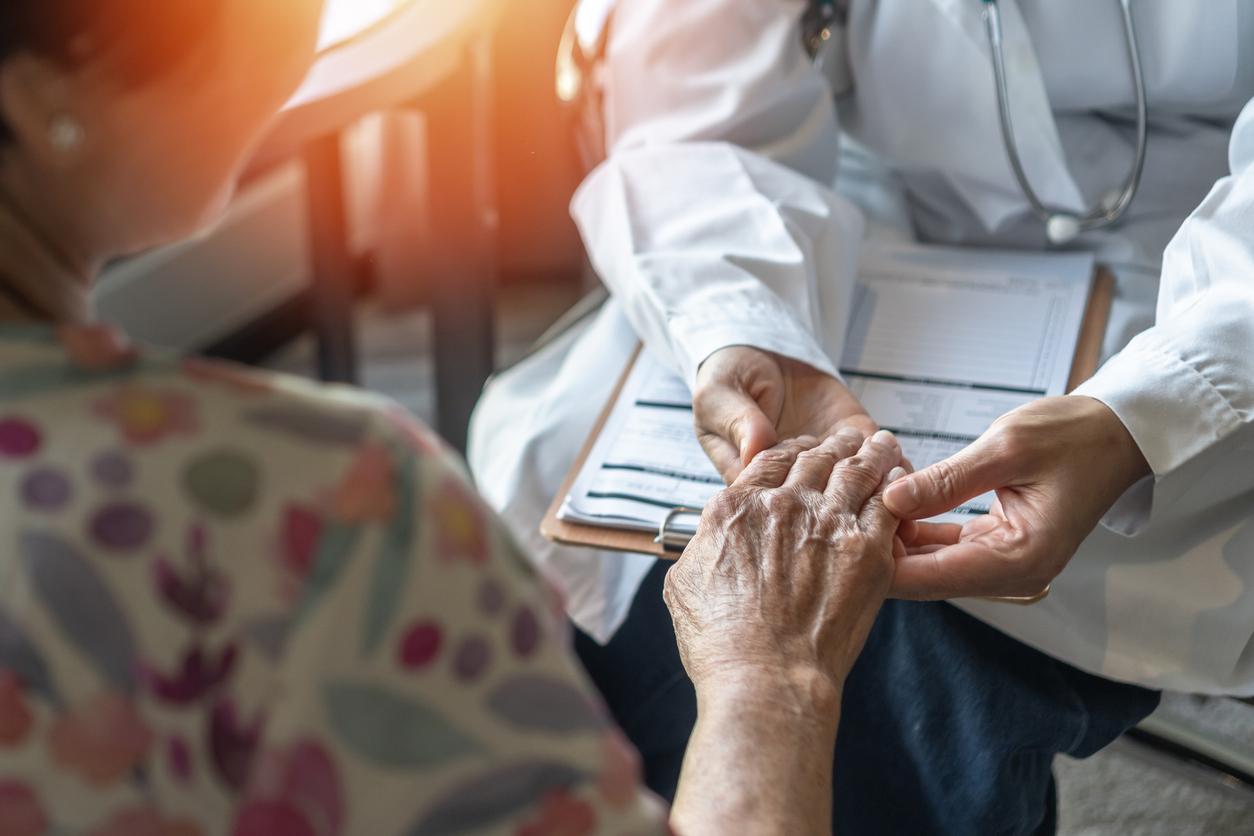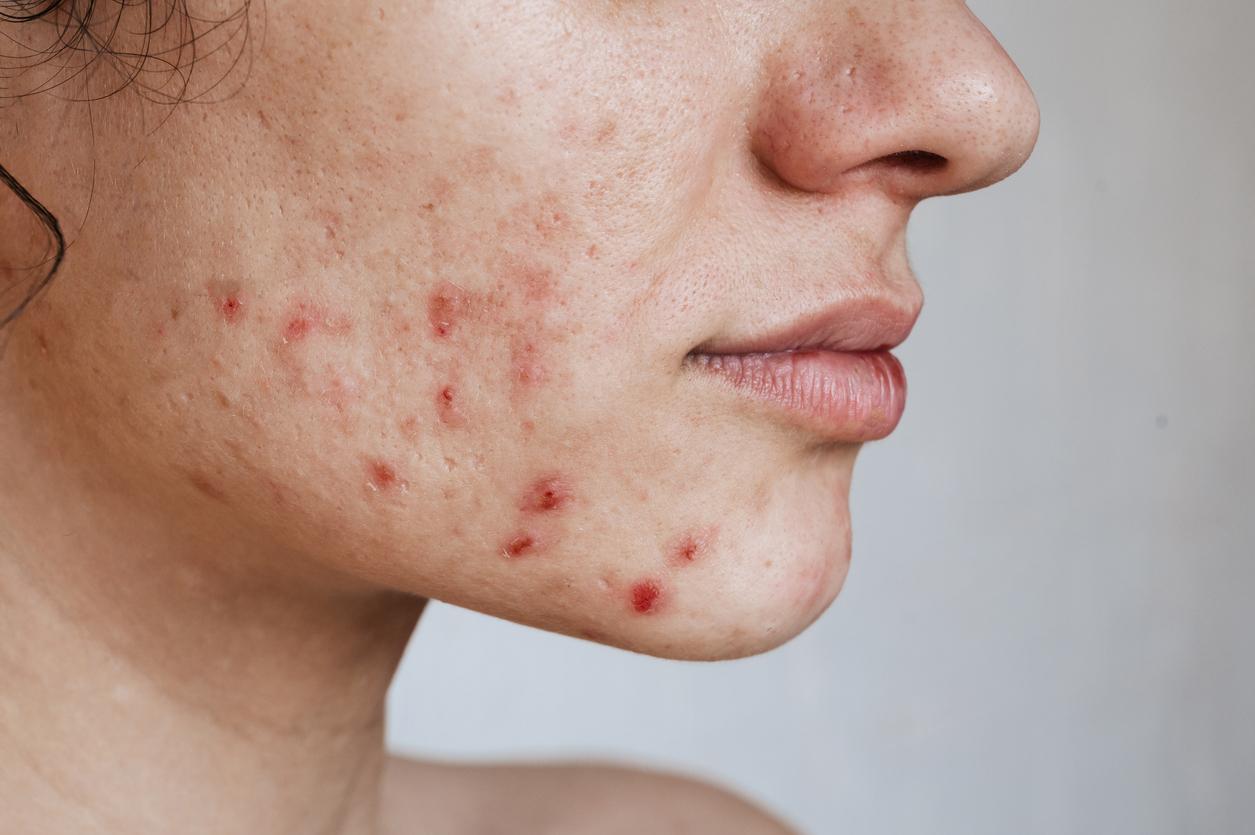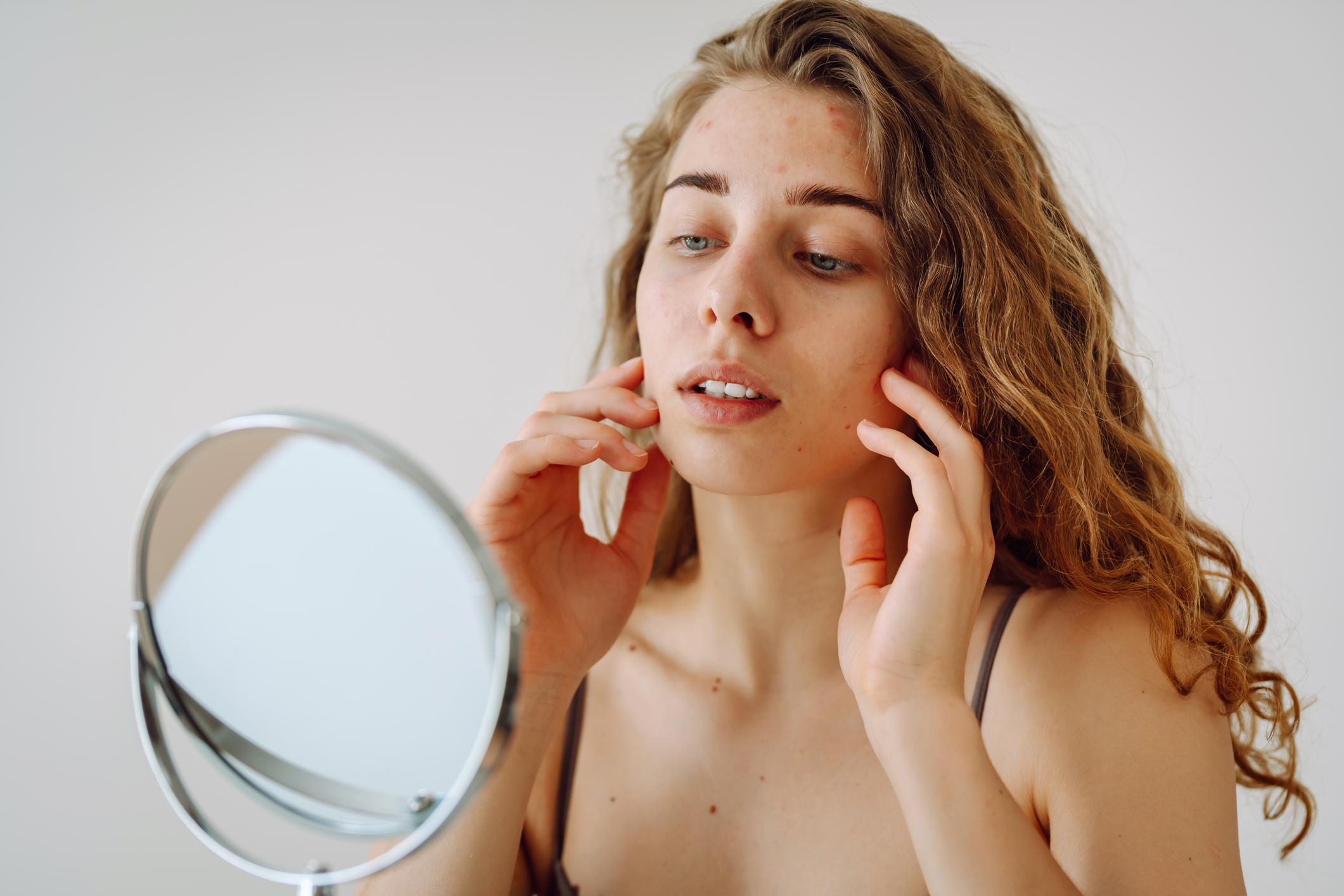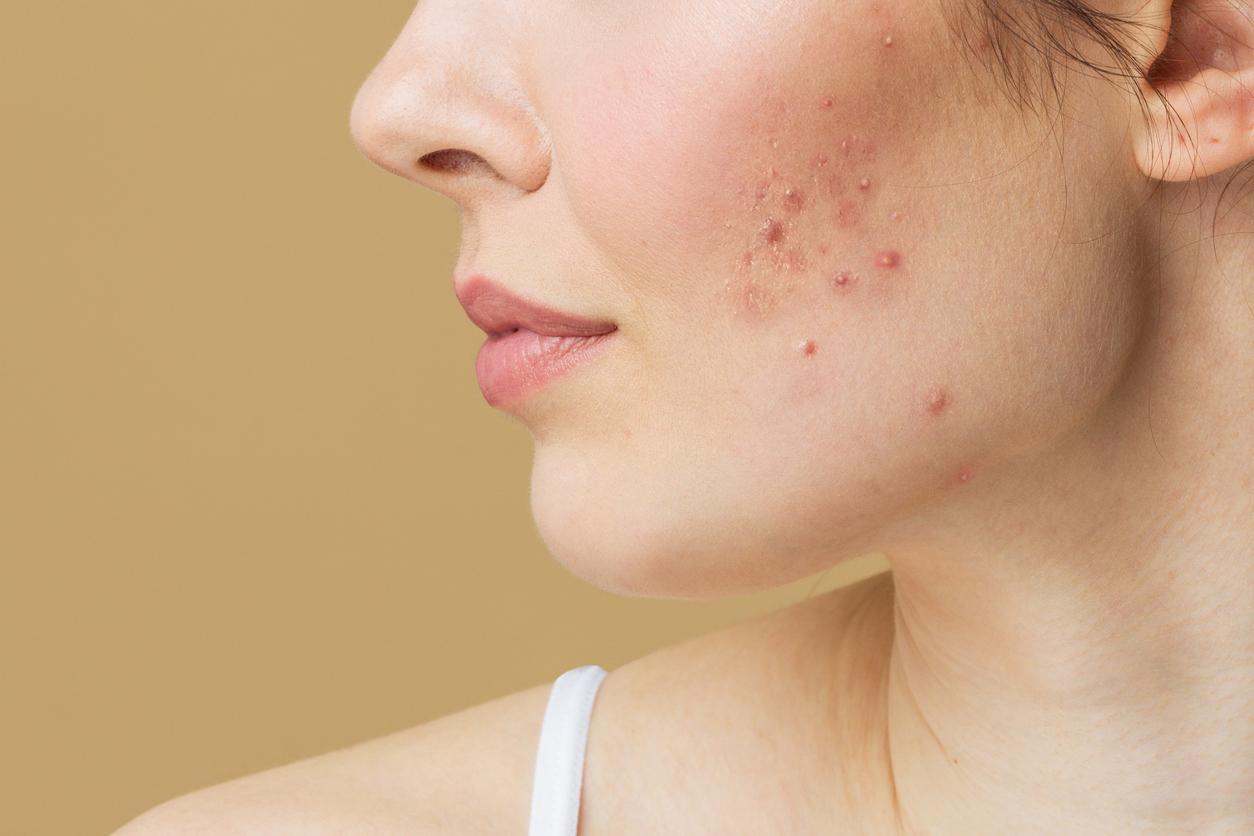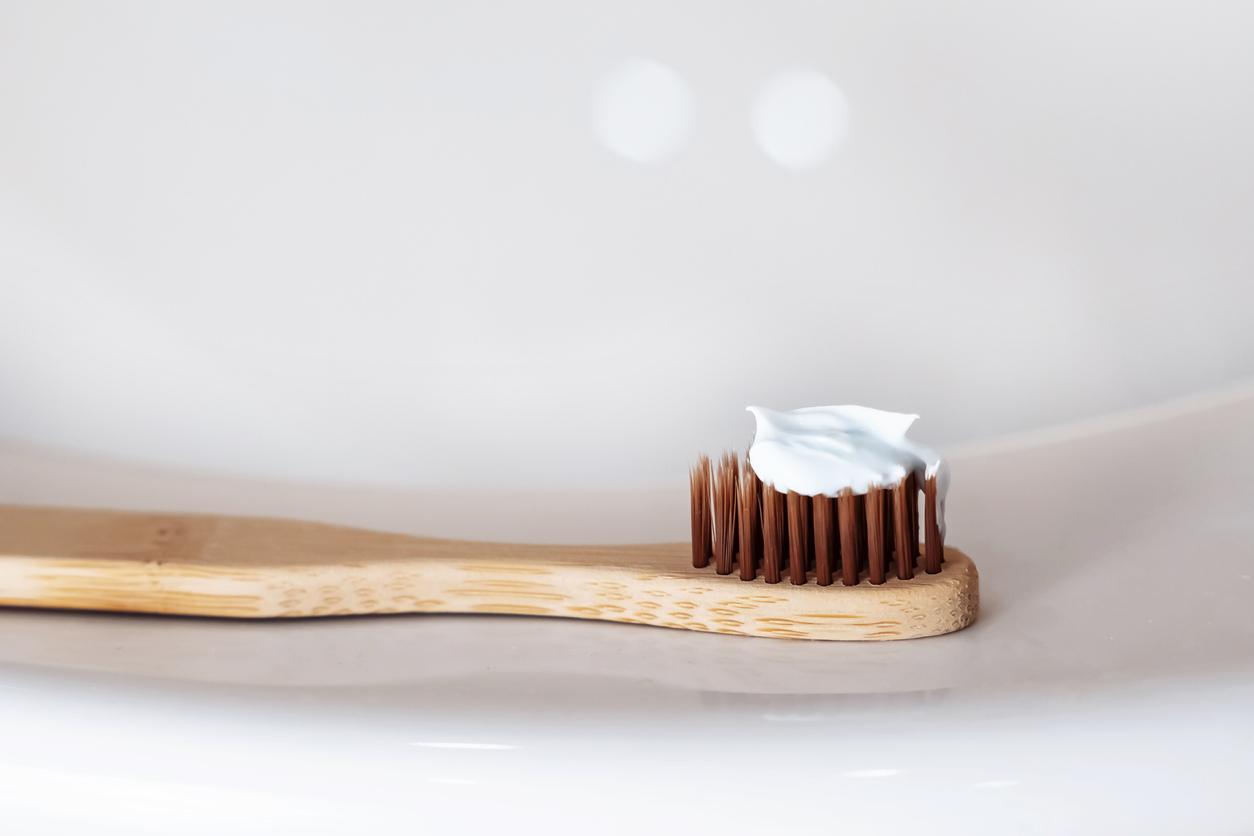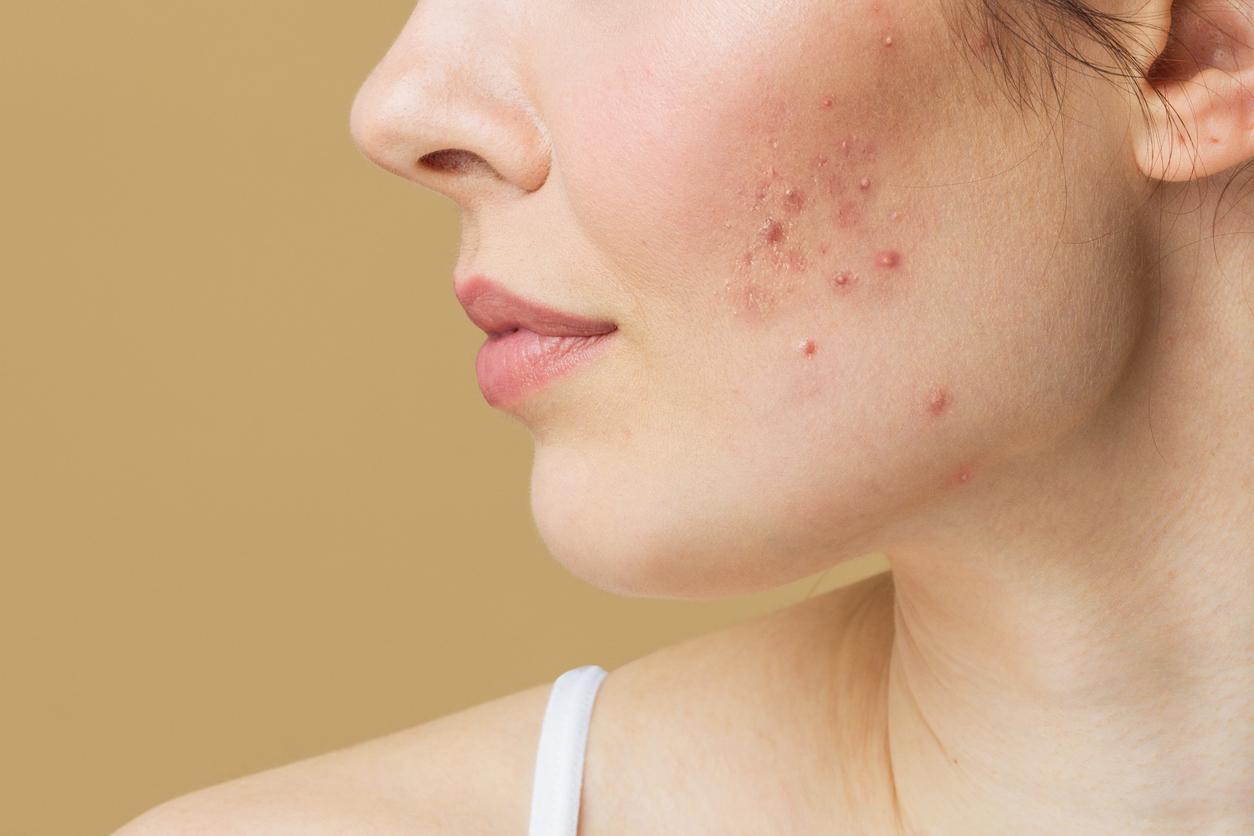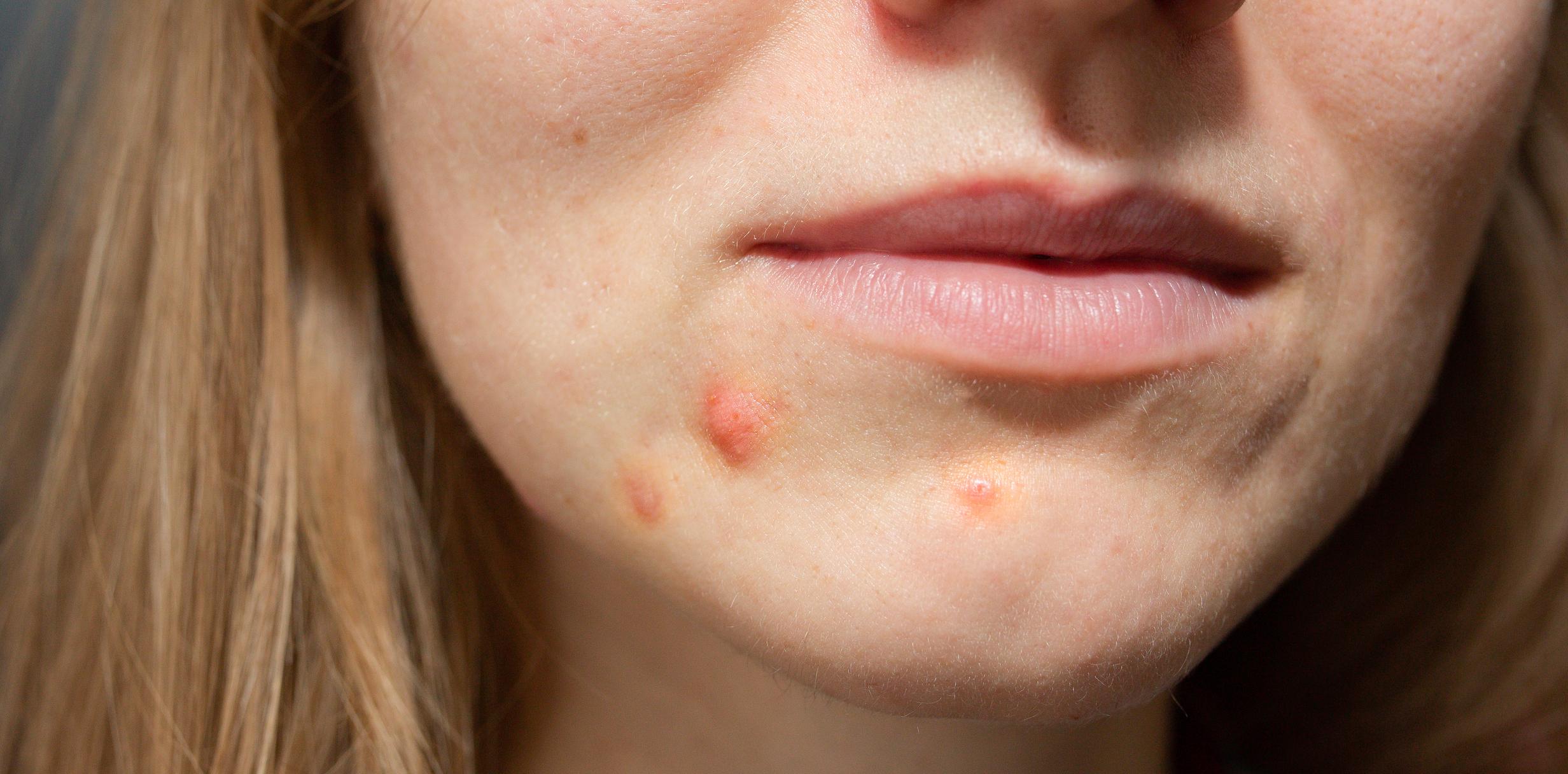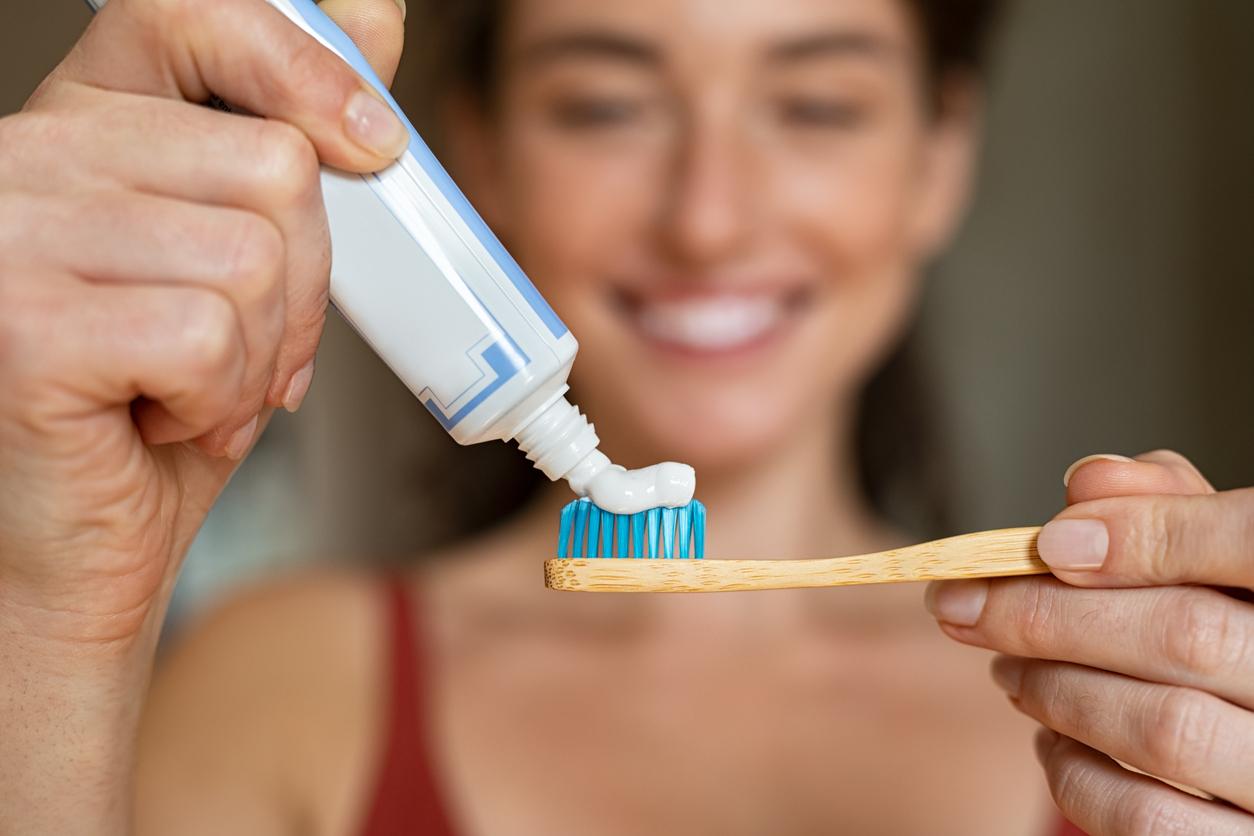In case of acne, putting toothpaste on a pimple is not a good idea because it can increase its volume, redness and skin irritation.
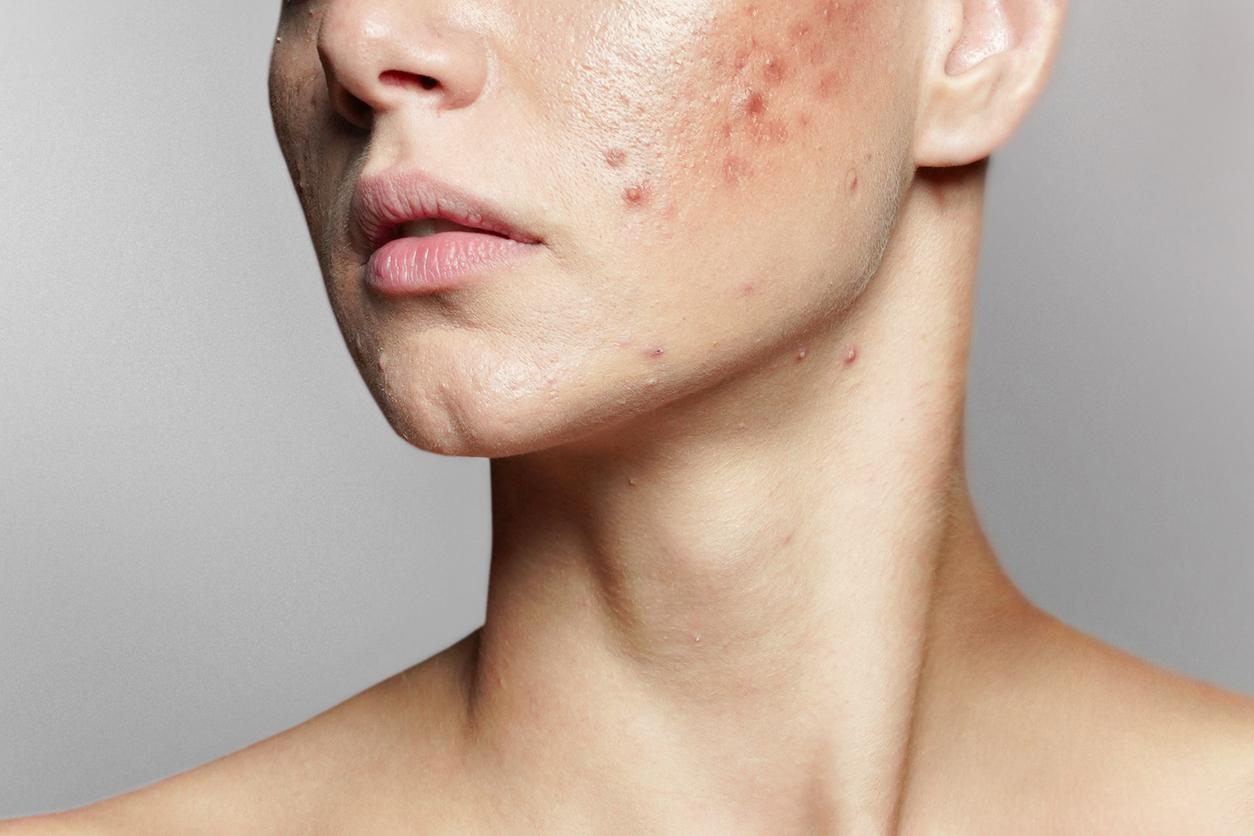
- The face is the area most often affected by acne for 95% of people with acne, according to Health Insurance.
- Other areas of the body can also be affected, such as the back, the neck or even the anterior part of the thorax.
Most of us have heard this grandmother’s remedy at least once: you have to put toothpaste on a pimple so that it dries and goes away faster! And yet…
“The toothpaste tip seems like a quick and easy fix using something that’s already in the house, explains Taylor Bullock, dermatologist. But that’s not a good idea. Toothpaste will probably do your skin more harm than good (…) you end up with a redder and more irritated pimple than when you started“.
Toothpaste can irritate the skin
Toothpastes are obviously not made to be applied to the skin. In it, many ingredients are aggressive for the epidermis and can cause irritation, burns, redness, inflammation… We must therefore forget this grandmother’s remedy.
But if the toothpaste trick is not effective, what should be done to get rid of a pimple? It’s best to buy spot treatments that contain the following two ingredients: salicylic acid and benzoyl peroxide. The former helps remove dead cells from the skin’s surface and the latter targets bacteria that can make acne worse. “They’re easy to find, they’re cheap, and they’re much better and more effective spot treatments for a pimple.“, insists Taylor Bullock.
Another piece of advice to make the pimple go away faster: above all, never try to touch it or pierce it, as this damages the skin. Usually the result is increased redness and scarring for several days or even weeks.
Good hygiene to avoid the appearance of pimples
In prevention, to prevent pimples from appearing, it is best to have good hygiene: wash the skin of the face every morning and every evening with a suitable product. Health insurance recommend using “gentle toiletries with a pH close to that of the skin (dermatological gels) to remove excess sebum”. For people who wear makeup, it is obviously essential to remove makeup every night.
If you suffer from acne, it is also recommended that you apply a non-comedogenic and fragrance-free anti-acne moisturizer every morning to reduce the risk of allergy. In case of exposure to the sun, you must also protect your skin with a high protection sunscreen because the sun’s rays thicken the epidermis and aggravate acne.
“No specific diet can be advised, but it seems reasonable to avoid overweight and snacking on sugary foods”, specifies the Health insurance. In France, acne concerns 80% of adolescents and young adults between 12 and 20 years old. Among them, about 15 to 20% of cases are considered severe.



